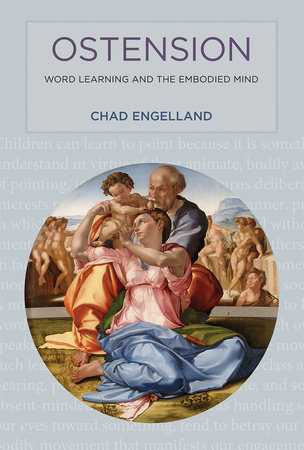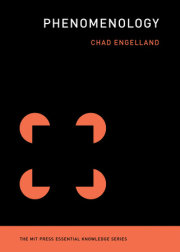An examination of the role of ostension—the bodily manifestation of intention—-in word learning, and an investigation of the philosophical puzzles it poses.Ostension is bodily movement that manifests our engagement with things, whether we wish it to or not. Gestures, glances, facial expressions: all betray our interest in something. Ostension enables our first word learning, providing infants with a prelinguistic way to grasp the meaning of words. Ostension is philosophically puzzling; it cuts across domains seemingly unbridgeable—public–private, inner–outer, mind–body. In this book, Chad Engelland offers a philosophical investigation of ostension and its role in word learning by infants.
Engelland discusses ostension (distinguishing it from ostensive definition) in contemporary philosophy, examining accounts by Quine, Davidson, and Gadamer, and he explores relevant empirical findings in psychology, evolutionary anthropology, and neuroscience. He offers original studies of four representative historical thinkers whose work enriches the understanding of ostension: Wittgenstein, Merleau-Ponty, Augustine, and Aristotle. And, building on these philosophical and empirical foundations, Engelland offers a meticulous analysis of the philosophical issues raised by ostension. He examines the phenomenological problem of whether embodied intentions are manifest or inferred; the problem of what concept of mind allows ostensive cues to be intersubjectively available; the epistemological problem of how ostensive cues, notoriously ambiguous, can be correctly understood; and the metaphysical problem of the ultimate status of the key terms in his argument: animate movement, language, and mind. Finally, he argues for the centrality of manifestation in philosophy. Taking ostension seriously, he proposes, has far-reaching implications for thinking about language and the practice of philosophy.






